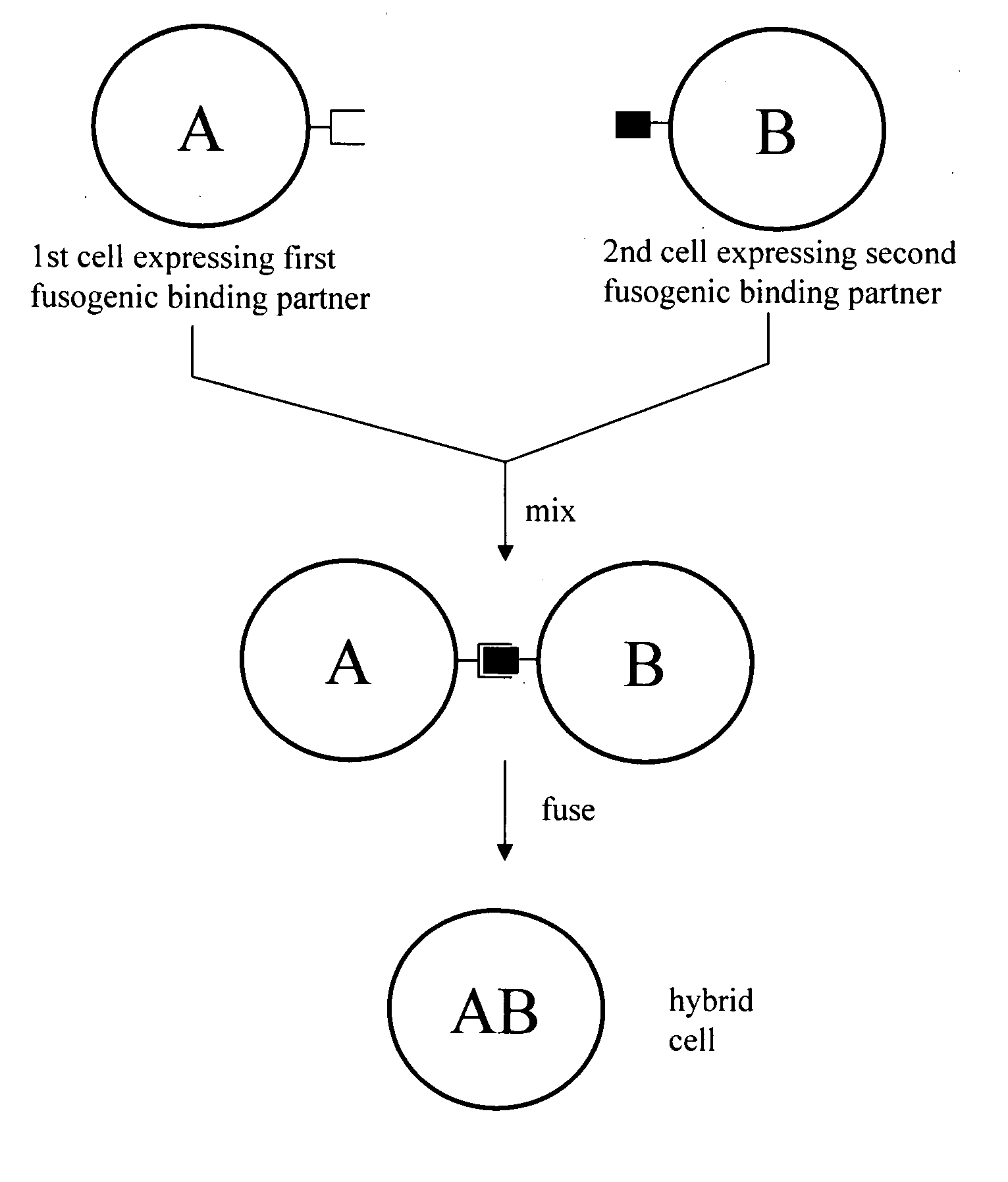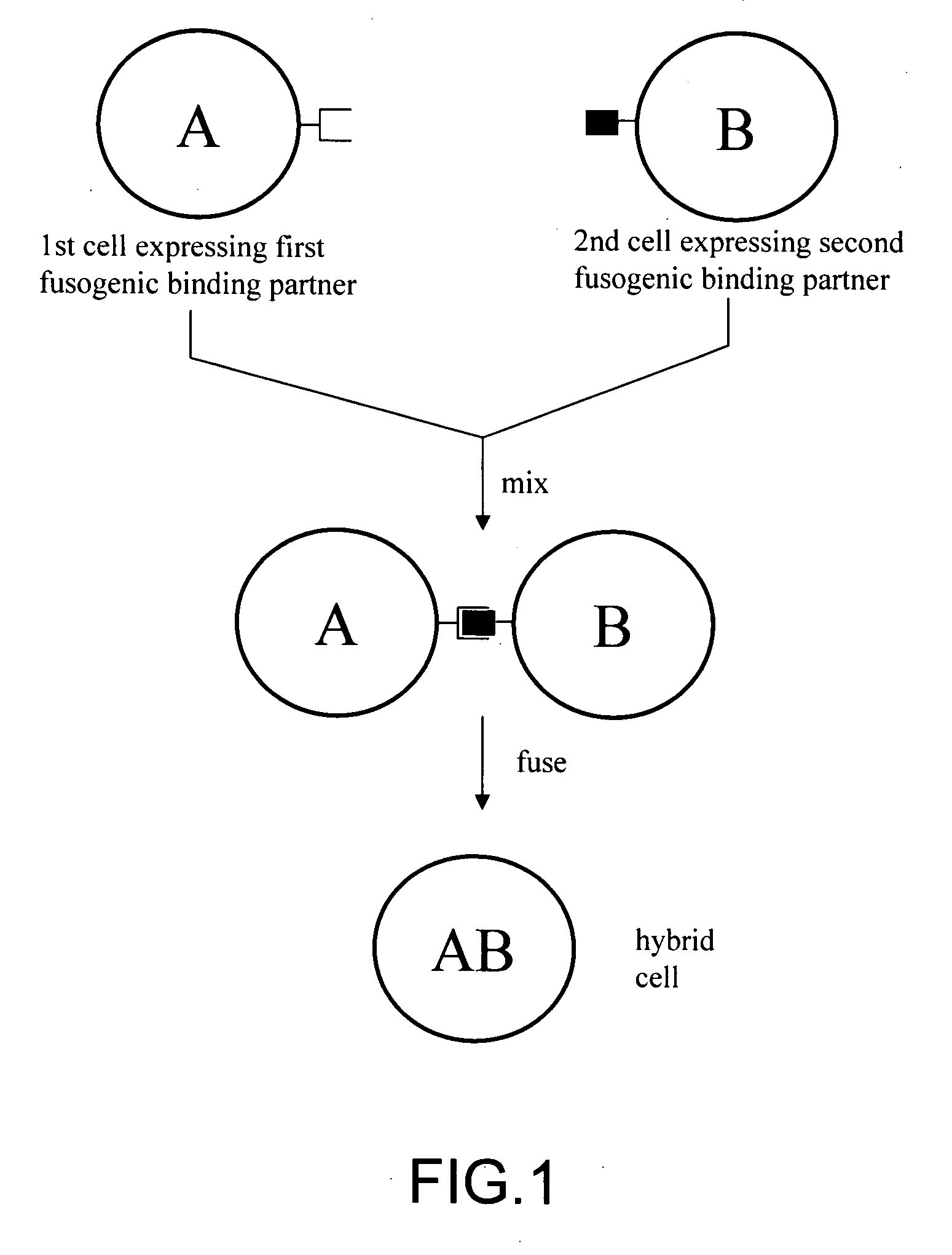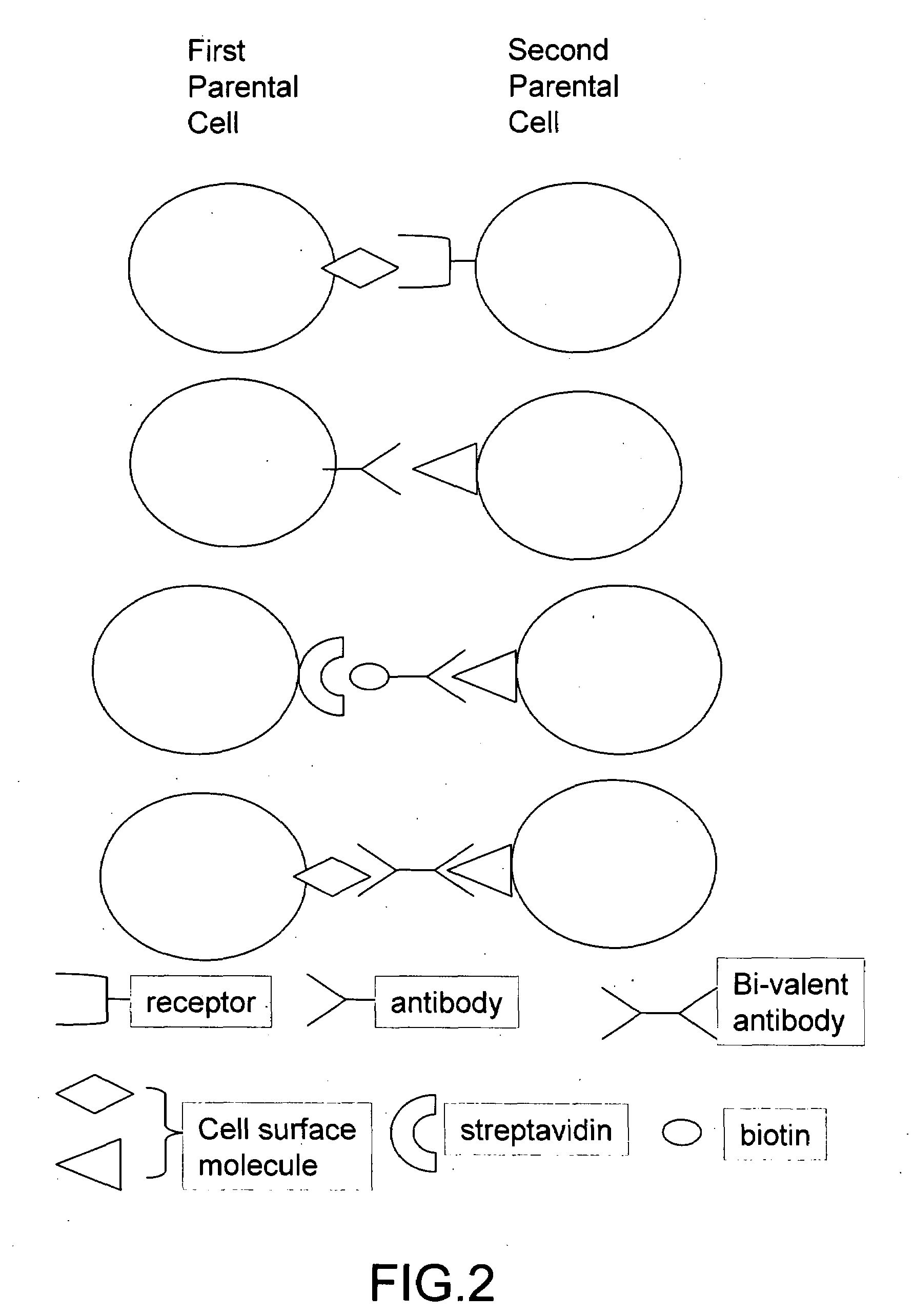Cell fusion method
a cell fusion and cell technology, applied in the field of cell fusion, can solve the problems of inability to produce hybridoma for a particular monoclonal antibody that is encoded by only a few antibody-producing cells of a host mammal, inability to produce hybridoma,
- Summary
- Abstract
- Description
- Claims
- Application Information
AI Technical Summary
Benefits of technology
Problems solved by technology
Method used
Image
Examples
Embodiment Construction
[0050]The invention provides methods for fusing a first cell with a second cell to form a hybrid cell. The methods involve incubating a first parental cell producing a first partner of a fusogenic binding partner pair on its surface with a second parental cell producing a second partner of the fusogenic binding partner pair on its surface. In certain embodiments, the parental cells are incubated with a known fusogen such as polyethylene glycol and the fusogenic binding partner pair increases the rate of cell fusion. In many embodiments, the first cell is an antibody producing cell, the second cell is an immortal cell, and the hybrid cell is a hybridoma cell that produces a monoclonal antibody. Also provided by the invention are methods for producing hybridoma cells, and methods for screening those cells for production of a monoclonal antibody of interest. The invention further provides systems and kits for carrying out the subject methods. The subject methods, systems, and kits find...
PUM
| Property | Measurement | Unit |
|---|---|---|
| pH | aaaaa | aaaaa |
| pH | aaaaa | aaaaa |
| non-covalent interaction | aaaaa | aaaaa |
Abstract
Description
Claims
Application Information
 Login to View More
Login to View More - R&D
- Intellectual Property
- Life Sciences
- Materials
- Tech Scout
- Unparalleled Data Quality
- Higher Quality Content
- 60% Fewer Hallucinations
Browse by: Latest US Patents, China's latest patents, Technical Efficacy Thesaurus, Application Domain, Technology Topic, Popular Technical Reports.
© 2025 PatSnap. All rights reserved.Legal|Privacy policy|Modern Slavery Act Transparency Statement|Sitemap|About US| Contact US: help@patsnap.com



